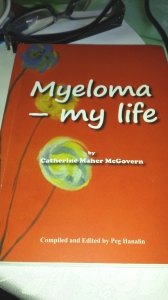Recreational Drug use
Recreational drug use?
How much longer will we have to listen to those who tell us they only use cannabis for a bit of fun or recreation? How much longer will we see the law of the land being broken? How much longer will we see our children subjected to peer pressure to use drugs for the “crack”? How long more will we ignore the dealers who are well known in their communities? Only part of growing up, they tell us. Only experiencing new feelings and experimenting, they say. We even have elected representatives promoting the use of cannabis to be made legal. It is time we all woke up to the long-term damage that any drug, including cannabis, can leave in its wake, much of it irreversible for life. They are sounding out reasons to help legalise cannabis, the most popular of recreational drugs used in many countries across the world. Cannabis may give a sense of euphoria, a drunken feeling, or a euphoric sensation but leaving behind mental confusion and many other health problems for its user to bear. Studies carried out over many years in Australia and New Zealand and many other countries including the Netherlands tell a different story, that is not being told.
A recent study in New Zealand carried out on a thousand people under eighteen years of age has found that cannabis leaves a significant and irreversible reduction in their IQ. It also found that weekly use of cannabis ensured a twofold increase in depression and anxiety, especially in young women and persisting into later life. Regular use of cannabis trigger acute psychotic episodes and worsen outcomes in established psychosis. Daily users reported high levels of depression, anxiety, fatigue and low motivation. In a further survey of young adults, over 33% reported they had suffered anxiety and panic attacks with 15% reporting psychotic symptoms. The study also found that they under achieve and are less successful in their chosen occupation and eventual marriage. The more they use, the greater the long-term effects of cannabis.
And we are all asked to buy into the myth that cannabis is ok to use, it is only a recreational drug doing no harm!
Other research available have evidence that cannabis has many adverse effects on users and develop dependence, impaired respiratory function, cardiovascular disease, psychotic symptoms and adverse outcomes of adolescent development, namely poorer educational outcomes and an increased likelihood of using other illicit drugs. Further disturbing evidence from research in Sweden showed cannabis was associated with an increased risk of developing schizophrenia.
So why do we continue to be fooled by those looking to legalise cannabis? Is it because they may be addicted and do not want to be law breakers? The research shows that the use of cannabis have plenty of long-term negative effects on the user that affect all of society. So have we learned nothing from legalising alcohol, nicotine, or prescribed drugs? All these put together cost the taxpayer multi billions every year in health, in criminality and in education. Not to mention lost days at work or long-term sick leave. Once a drug is legalised it is accepted by society no matter what the consequences for those who must pay by added taxes and frustration.
When we look at the detrimental health damage done to so many, that is escalated by the use of illicit drugs and the scarce resources that are now being allocated to those in dire need of the Mental Health Services, it is time that the long-term effects of cannabis and all other illicit drugs be highlighted and the law brought to bear on those who sell and deal in drugs as well as those who use. We all recognise that our country is awash with all kinds of drugs readily available in every town and village, even in our prison population. The time has come to tackle this enormous problem and find ways of addressing addiction and the tentacles that flows from this problem to the detriment of society and to our next generation.
Communities need to get together, as we saw recently in Roscrea, and shout out loud that a stop must be put to this scourge and the damage being done to our citizens, sometimes because of lack of knowledge of the consequences. All drugs have far reaching implications for those that use and abuse, so maybe we should promote the benefits of abstinence and ask young people to take a “pledge” not to indulge. This happened in our lifetime when you got your Confirmation, you took a pledge to abstain from alcohol, many kept that pledge all their life. Their lives would most certainly be better and more peaceful when they have full control of their senses and can make proper decisions that will bring them happiness. Much of the violence we see now would be eliminated and families would be saved the pain and trauma of seeing the end result of what is mood altering and personality destruction in our country.
Peg Hanafin, MSc. Rehab/Psych/Couns. 20/08/2014
Author of “Getting More out of Life”, now available in bookshops.

